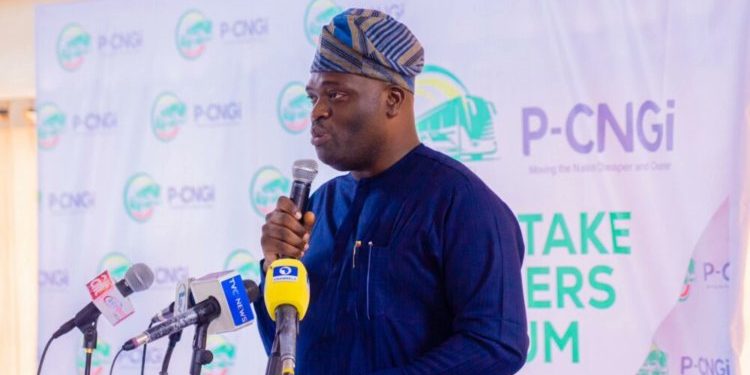The Presidential Compressed Natural Gas Initiative (P-CNGi) has unveiled a new national framework to scale up access to compressed natural gas (CNG) as a cleaner, more affordable alternative to petrol especially in the transport sector.
Speaking at the launch in Abuja, Programme Director Michael Oluwagbemi said the new Mobility-CNG Supply Framework is a collaborative effort with the Nigerian National Petroleum Company Limited (NNPC Ltd.), the Nigerian Midstream and Downstream Petroleum Regulatory Authority (NMDPRA), and the Gas Aggregation Company of Nigeria (GACN).
The framework introduces a transparent and concessionary pricing structure, ensuring CNG remains affordable to end-users while accounting for upstream and midstream costs. “It’s a model that balances fair market returns with the national interest,” Oluwagbemi said.
The initiative is part of Nigeria’s broader energy reform strategy in the post-fuel subsidy era, aiming to reduce transport costs, promote domestic gas use, and shift the country towards cleaner energy solutions.
Backed by $200 million in direct investment so far, P-CNGi has already converted 100,000 vehicles to run on gas. According to Oluwagbemi, this is just the beginning. “We are now building the ecosystem to make CNG accessible and sustainable for all Nigerians.”
P-CNGi has expanded its infrastructure footprint significantly. From just 20 daughter stations a year ago, the country now boasts more than 65 operational outlets. Two new stations were launched in Ibadan in June, and 28 more are set to open in the coming months.
To ensure steady gas supply across this expanding network, GACN has secured 40 million standard cubic feet of gas per day, with half already in circulation. High-capacity CNG trailers will deliver gas from mother stations to daughter and retail locations across Nigeria.
The framework also includes strong regulatory safeguards to prevent abuse, such as diverting autogas to industrial use. Approved by the NMDPRA in 2024, the framework enforces supply integrity while supporting energy affordability.
Omolara Obileye, Strategy and Business Development Coordinator at P-CNGi, said the initiative has now attracted over $500 million in combined investments, covering infrastructure, logistics, and workforce development.
More than 2,500 technicians have been trained to handle vehicle conversions, helping to build a skilled workforce for the growing autogas sector. The programme is active in 21 states, with 10 more expected to join soon.
As Nigeria moves to ease its dependence on petrol and reduce the economic pressures from fuel importation, the CNG initiative is emerging as a national game-changer generating jobs, supporting climate goals, and offering a reliable fuel alternative for millions.
“This is not just about energy, t’s about economic transformation,” Oluwagbemi said. “CNG is now a real option for Nigerians, and we are laying the foundation to make it mainstream.”










